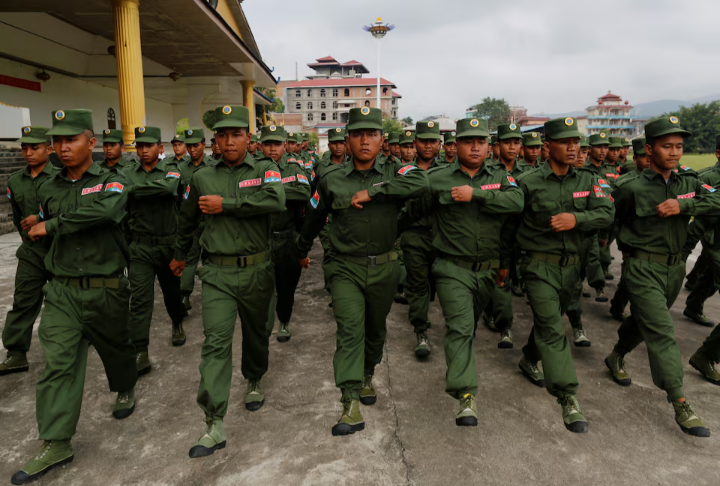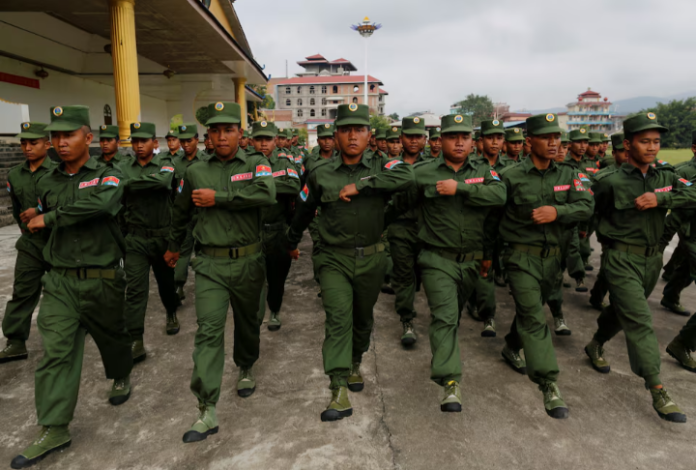In the quiet hills of eastern Myanmar, a geopolitical game is unfolding that could reshape the global tech and energy markets. New rare earth mines—critical for everything from electric vehicles to smartphones—have quietly emerged in Shan State. Behind their protection? A powerful, China-backed militia: the United Wa State Army (UWSA).
According to sources on the ground, including two mine workers and local residents, Chinese-speaking operators are running the operations.
Around 100 workers are laboring in shifts, using chemical extraction methods to pull rare earth elements like dysprosium and terbium from the earth—minerals crucial for manufacturing magnets used in green energy, defense systems, and cutting-edge electronics.
But this isn’t just about mining—it’s about power. China already dominates the global rare earth market, particularly the processing of heavy rare earths. However, it depends heavily on Myanmar to meet its raw material needs. In fact, nearly half of China’s rare earth imports in early 2025 came from the Southeast Asian nation.
That dependency became a vulnerability earlier this year when an armed conflict in Myanmar’s north disrupted the flow of minerals. Beijing responded by looking east, towards Shan State, where it appears to have struck a quieter, more secure arrangement—under the protection of the UWSA.
Satellite imagery analyzed by experts shows rapid development in the area since 2023, with dozens of leaching pools—chemical ponds used to extract rare earths—now visible. One facility reviewed showed at least 20 such pools operating by early 2025.
Although the mines are smaller than those in northern Kachin, experts say they’re targeting the same valuable materials. Minerals analyst David Merriman told Reuters the infrastructure suggests these sites have been active for some time already.
The UWSA, a heavily armed militia with deep Chinese ties, controls a semi-autonomous region along the Chinese border. Their influence ensures security and control—locals need special ID cards to enter the mining zones. For Beijing, this means a stable, quiet source of rare earths, far from the chaos that disrupted operations in Kachin.

But why does this matter globally? Because rare earths are not just rocks—they’re strategic assets. The ongoing trade tensions between the U.S. and China have made access to these minerals more than a supply chain issue; they’re now a geopolitical lever.
With prices already climbing—terbium oxide rose over 27% in just six months—any disruption can send shockwaves through industries reliant on these materials, from aerospace to semiconductors.
In Myanmar, where transparency is low and conflict is high, this arrangement raises major questions. Who truly controls the mines? How safe are the workers? And what will happen if fighting spreads into Shan State?
For now, China’s quiet mining expansion under the shadow of a militia shows how resource security is increasingly being shaped not by corporations or markets, but by militaries and political deals in remote corners of the world.



